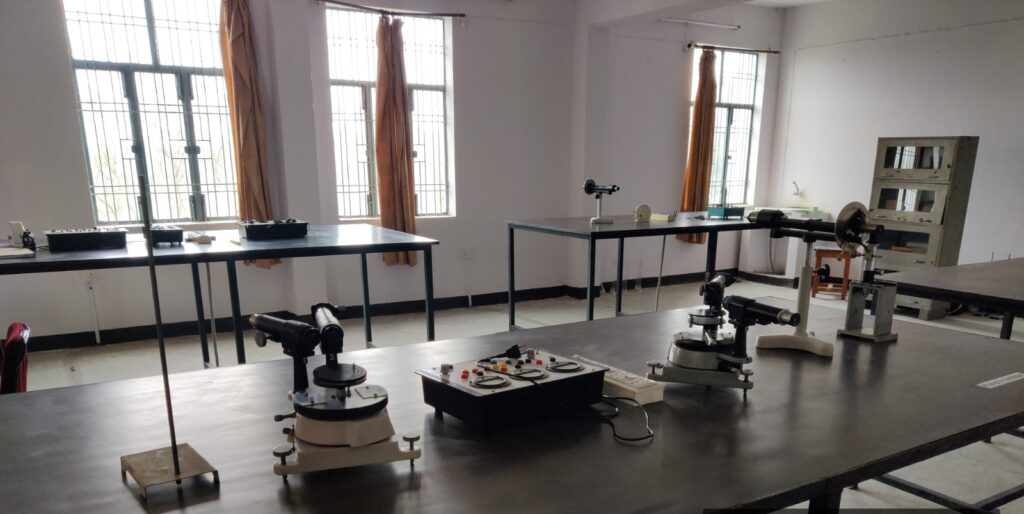Department of Physics
The Department of Physics was established in August 2013 as a core subject for B.Sc. (Mathematics Group) students. Physics is a vital discipline that shapes students’ academic foundation, career prospects, and understanding of the natural world.
Physics provides a deep understanding of the fundamental principles that govern the universe—such as mechanics, electromagnetism, thermodynamics, and quantum mechanics. This knowledge is crucial for comprehending how natural phenomena occur and forms the basis for advanced studies in related fields like astrophysics, biophysics, materials science, and engineering.

graduate programs and professional careers. Career opportunities for physics graduates span a wide range of industries, including:
-
Technology & Innovation: In roles related to semiconductors, lasers, quantum computing, renewable energy, and telecommunications.
-
Engineering Fields: Including aerospace, civil, and electrical engineering.
-
Healthcare & Medical Physics: Applications in radiation therapy, diagnostic imaging technologies, and medical devices.
-
Education & Research: Opportunities in teaching and cutting-edge scientific research.
-
Emerging Technologies: Use of computational physics in big data analysis and artificial intelligence.
-
Interdisciplinary Fields: Such as nanotechnology, environmental science, and computational biology.
Physics also develops essential analytical and problem-solving skills. Students learn to apply mathematical models, perform simulations, and use logical reasoning—skills that are transferable to domains like finance, software development, and policy analysis.
The B.Sc. Physics program emphasizes hands-on lab work, teaching students to design experiments, analyze data, and use sophisticated instruments such as spectrometers and oscilloscopes. These practical skills are highly valued in both research and industry.
Moreover, studying physics cultivates critical thinking and curiosity, encouraging students to challenge assumptions and seek evidence-based solutions. This mindset is invaluable across all careers and life experiences.
Physics prepares students to address global challenges, from combating climate change through energy research to contributing to space exploration and sustainable technologies. It also provides a strong foundation for competitive exams such as GATE, JAM, GRE, and UPSC, where analytical and conceptual understanding is essential.
In essence, physics is more than just a subject—it’s a gateway to intellectual growth, versatile career paths, and meaningful contributions to science and society.
